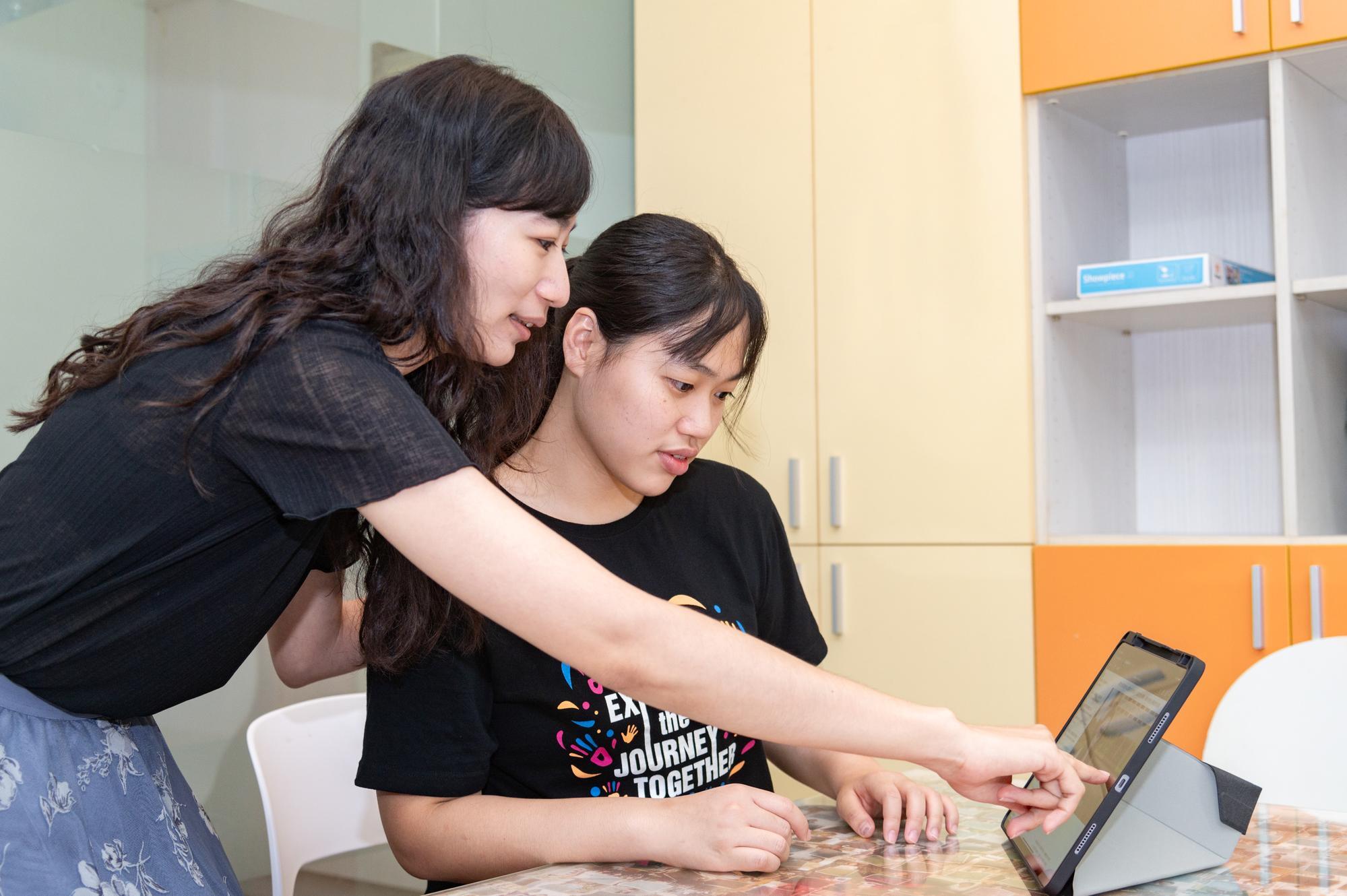2023.10.12
College offers students the chance to meet all sorts of people that they might never have a chance to meet otherwise. Yet, some first-year students may still find it challenging to fit in or feel pressure to keep their advisors informed about their weekly progress.
To provide support in the best ways possible, the Counseling Center at National Tsing Hua University (NTHU) in Taiwan has collaborated with highly respected counseling psychologists who specialize in treating young people to create a series of online micro-courses known as "The Mind Maze Challenge."
These courses cover topics such as finding a sense of belonging, overcoming procrastination, understanding the psychology of love, and identifying the seven signs of a toxic relationship. The goal is to inspire students to engage in introspection, practice self-care, and gain a deeper insight into others, ultimately fostering mental well-being within the campus community.
Director Daw-wei Wang (王道維) of the Counseling Center emphasized that these online mental health courses, designed with a student-centered approach from naming to topic selection, represent an innovative initiative in Taiwanese higher education.
Before creating the courses, a thorough survey was conducted, which included over 700 questionnaires, to identify the psychological health subjects that are of greatest concern to students. These subjects included self-awareness, stress management, and proficient communication with peers, parents, and mentors.
Director Wang explained that, in order to increase student engagement with the videos, they have steered away from a didactic approach and opted for a more cheerful and dynamic presentation style. In some videos, student volunteers even hold discussions with counseling psychologists, aiming to connect with their peers.
Each video lasts for only 15 to 20 minutes. Currently, 15 episodes have been produced, complete with both Chinese and English subtitles. There are upcoming plans to steadily increase the content to 30 episodes. Students are encouraged to choose the topics that pique their interest and tune in.
Ya-ting Yang (楊雅婷), a full-time counseling psychologist at the Counseling Center who is involved in course planning, noted that previously the Center conducted workshops on overcoming procrastination, which consistently drew a significant number of participants. This indicates a keen interest among students in this subject.
She also noticed that at NTHU, some students tend to procrastinate due to their perfectionist inclinations. These high-achieving individuals are so committed to attaining perfection that they find it challenging to come to terms with mistakes and setbacks, which consequently hinders them from starting new tasks.
In the video titled "Procrastination," clinical counseling psychologist Yi-hsien Su (蘇益賢) explains that students often put off tasks such as reporting or updating their progress with their advisors. They start by delaying, then go through a phase of intense productivity to get the task done, only to eventually return to the cycle of procrastination.
Su suggested that perfectionist students should refrain from expecting perfection right from the beginning. Instead, they should focus on making progress before aiming for perfection. Breaking tasks into smaller chunks, like reading a chapter or a page, can also be helpful. This approach can make the initial challenge feel more manageable.
Some students, particularly those fresh out of high school, might worry about their ability to make friends and blend into a social group. In an episode named "The Sense of Belonging," Su challenges the widespread beliefs that students have about extraversion and introversion.
He also offers advice on starting and nurturing social connections right from the beginning. This includes actively engaging in conversations with classmates who might seem to be on the fringes of a group.
The three-part video series "Lab of Love," presented by counseling psychologist Yu-hsin Su (蘇予昕), has gained immense popularity among students. Through a dynamic and casual approach, Su explores the complexities of the psychology of love and provides valuable insights on dealing with breakups, resolving conflicts, and identifying the seven key signs of a toxic relationship.
Director Wang emphasized that the Counseling Center is dedicated to enhancing mental health support on campus. In addition to the ongoing recruitment of both full-time and part-time counseling psychologists, the Center is currently renovating and expanding its facilities. This endeavor aims to provide students with improved mental health services and a more favorable counseling atmosphere.
Non-NTHU faculty and students can also register for free to access “The Mind Maze Challenge” micro-courses online. The website link is:

The online course production team at NTHU's Counseling Center (left to right): Counseling psychologists Ya-ting Yang (楊雅婷), Shih-jung Cheng (鄭詩蓉), Ya-hui Wu (吳雅慧), Director Dao-wei Wang (王道維), counseling psychologists Chi-chun Kao (高祺淳), Ming-jhen Lai (賴姳臻), and Hui-chu Chan (詹惠竹).

The online course production team at NTHU's Counseling Center (left to right): Counseling psychologists Ya-ting Yang (楊雅婷), Shih-jung Cheng (鄭詩蓉), Ya-hui Wu (吳雅慧), Director Dao-wei Wang (王道維), counseling psychologists Chi-chun Kao (高祺淳), Ming-jhen Lai (賴姳臻), and Hui-chu Chan (詹惠竹).

In the video "The Mind Maze Challenge," clinical counseling psychologist Yi-hsien Su (蘇益賢) (right) engaged in a conversation about procrastination with student volunteers.

The online course production team at NTHU's Counseling Center (left to right): Counseling psychologists Ya-ting Yang (楊雅婷), Shih-jung Cheng (鄭詩蓉), Hui-chu Chan (詹惠竹), Ya-hui Wu (吳雅慧), Chi-chun Kao (高祺淳), and Ming-jhen Lai (賴姳臻).

NTHU students watching the online course "The Mind Maze Challenge."

Counseling psychologists from NTHU's Counseling Center viewing the online course "The Mind Maze Challenge" with students.

Students sharing their concerns with a counseling psychologist at NTHU's Counseling Center.

Counseling psychologist Shih-jung Cheng (鄭詩蓉) from the Counseling Center listening attentively to the concerns of students.








